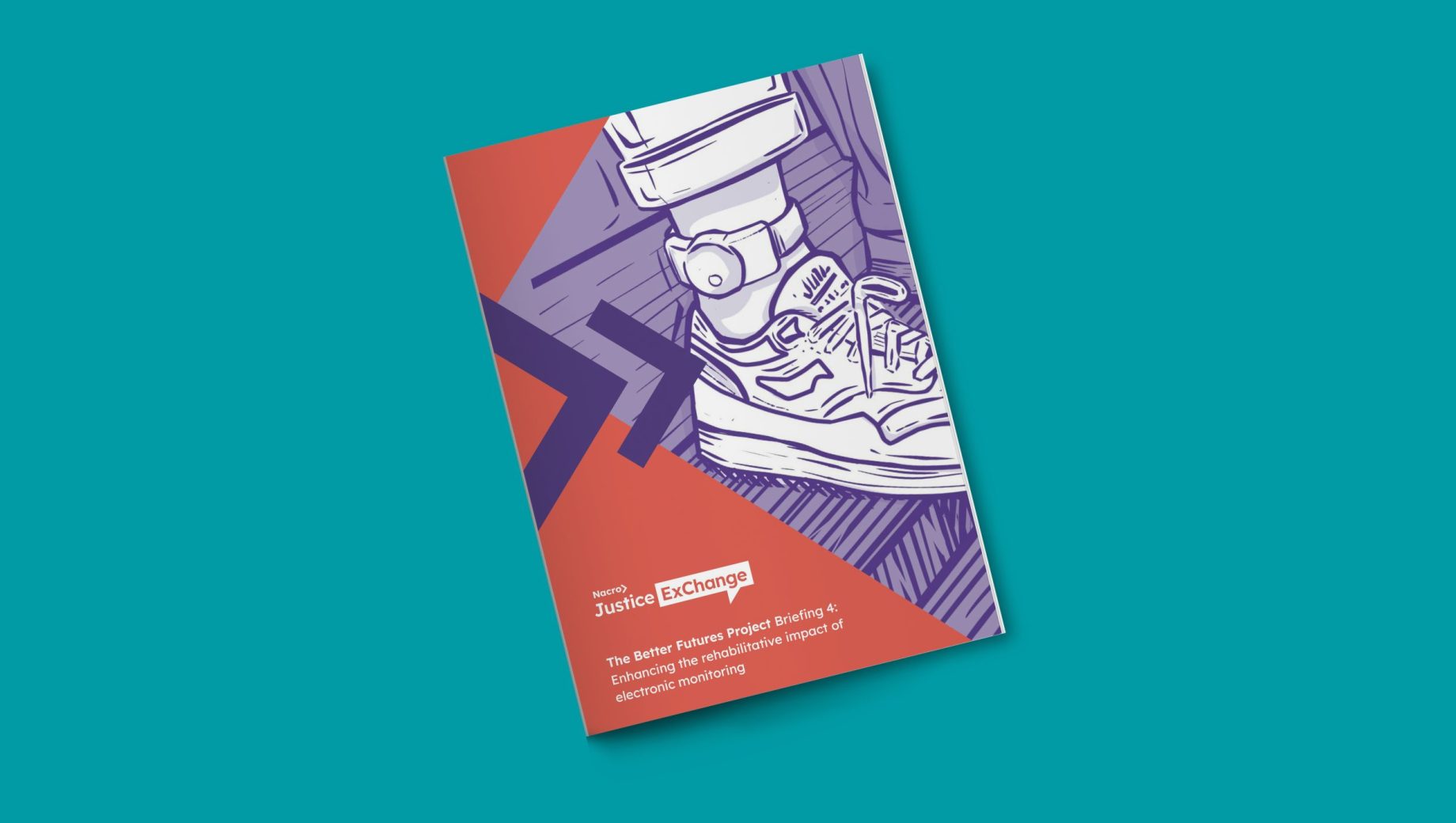
Electronic monitoring and rehabilitation
Electronic monitoring plays an important role in the criminal justice system, acting as an alternative to prison. Current Government proposals mean that its use is set to increase significantly. In this context, it is important to understand what works and where improvements can be made to ensure that its use supports people’s rehabilitation, and ultimately helps create safe communities.
Through our survey and interviews, we heard from people who were positive about the impact of electronic monitoring, including how it had provided accountability and structure. We also heard from people for whom electronic monitoring had put in place barriers to rehabilitation, such as being unable to find and take up work and keep in contact with families, factors well evidenced to reduce the risk of reoffending. This briefing explores these issues in more detail along with problems with the fitting and functioning of tags, and specific challenges some groups face.
We urge Government to address these barriers before expanding the use of electronic monitoring to ensure it has the best chance of success, helps reduce reoffending and creates safe communities.
Of 57 people surveyed:
-
60 %
of jobseekers thought it made finding and keeping a job harder
-
33 %
had problems with their tag not working properly
-
38 %
thought their tag helped them stay on track, 36% did not

Read the full report: 30 minute read
The report is the fourth from the Nacro Justice ExChange, a network of people who have been in contact with the criminal justice system and received support from Nacro. This briefing examines:
- The experiences of people who have been subject to electronic monitoring.
- Practical recommendations to improve its use to ensure that it supports people to turn their back on crime and, creating safer communities.

Video summary of report | Helen Berresford, Director of Engagement and Impact
Helen Berresford discusses key findings from Nacro’s tagging briefing, including insights from Justice ExChange members with lived experience of being on an electronic tag and potential solutions to improve the rehabilitative impact of tagging.
Views and experiences of the Justice ExChange on tagging:
I would like to have had the option to stay on tag after the end of my licence. I’ve asked probation, but it isn’t allowed. When I came off tag I went back to crime the next day, and I wouldn’t have done that if I’d been allowed to keep the tag on.”Justice ExChange member with positive experience of tagging
How we help people in contact with the justice system
We deliver a range of services to people in touch with the justice system. This includes our Community Accommodation Service (CAS-2), wellbeing support service, accommodation support service and finance support service for people under probation supervision or leaving prison; our Criminal Record Support Service providing advice to individuals and employers about disclosing criminal records; and more.
View our full list of justice services here.

We provide regular insight and expertise for policymakers and journalists. Our team regularly work with national, regional, local, and broadcast media outlets in relation to the justice system. If you’re looking for commentary or insight into policy needs, government decisions or developing stories, contact our Media team.


